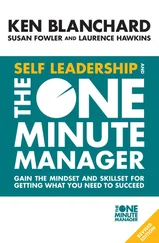The café kitchen was noisy. A group of teenage girls, wearing prom dresses from the fifties, stood at a table in the corner laughing and folding pink paper napkins into the shape of swans. A dozen of the boys stood beside Robert Buckwalter, following his moves as they cut chunks of carrot into the closest thing they could get to a flower. The carrot nubs were more tulips than roses, but they had a charm all their own.
Jenny had forgotten the boys were from a Seattle street gang until she saw their ease with knives. Some of those boys could have done credible surgery on something larger and more alive than a hunk of carrot.
Jenny was thankful for people like Sylvia Bannister who ran a center for gang kids in Seattle, and for Garth Elkton who had welcomed the kids to his ranch for a winter camp program. Jenny had seen how peaceful the Big Sheep Mountains looked in the snow. Low mountains skirted by gentle foothills. This little ranching community was a perfect haven for gang kids.
Sylvia and Garth were giving those kids a second chance. Mrs. Buckwalter was funding the winter camp and providing the lobsters tonight, both as a thanks to the community of Dry Creek, especially to the minister who had recently gotten married, and as a reward to the teenagers from Seattle for putting down their knives and learning to dance.
Sylvia and Garth were the kind of people that deserved to be number one on some New York tabloid list, not some hotshot rich man like Robert Buckwalter who spent half his life in Europe attending art shows, Jenny told herself. He didn’t even organize the shows; he just sat there and gave away money.
Jenny felt a twinge of annoyance. An able-bodied man like Robert Buckwalter should be more useful in life. Giving away money hardly qualified as a job—not when he had so much of it. She doubted he even wrote the checks himself.
“I ruined one of the mushrooms,” a girl wailed from the sink. “Totally ruined it. The stem didn’t come out right and—”
“Not a problem. We just cut it up and put it with the stuffing.” Jenny walked to the refrigerator to get out the herbed bread mixture that went in the few mushroom caps they’d found in the café’s refrigerator bin. “Nothing goes to waste in a good kitchen. There’s always some other place for it. If nothing else, there’s soup. ‘Waste not, want not’ my mother always used to say. And remember, aprons everyone.”
The kids groaned.
Robert Buckwalter grunted. He wondered if he was crazy. He shouldn’t be annoyed with the ever-resourceful Jenny. He should be grateful to her. After all, he’d hired her because of her apparent good cheer and her complete indifference to him.
During her job interview, she’d asked no personal questions about him—no sly inquiries about how often he’d be present for dinner at his mother’s home in Seattle, or whether as the family chef, she’d be required to fly to the flat he must have in London or maybe the villa he had in Venice or the chalet he had in the Alps…and surely he must have at least one of those, didn’t he? Or maybe he just traveled around in the plane he had, the one especially designed with all the gadgets, the one she’d read about in the papers, the one they called the ultimate “rich man’s” toy?
The questions would come. They always did.
Except with Jenny.
But then, maybe she’d just been more clever than most.
“Finished with the phone?” Robert asked politely. He hadn’t been fooled for a minute by the woman who had called claiming she needed to speak to Jenny urgently about some pudding order. Pudding, my foot. The woman was no salesperson.
Why else would Jenny take the call and disappear into that hole of a pantry where no one could hear her conversation?
Not even bats would go into that pantry if they didn’t have to. Jenny had literally needed to pry the door open earlier with a crowbar. The wood was half-rotted and the wind blew in through the knotholes.
No, it wasn’t a place where anyone would go for a cozy phone conversation with a pudding salesperson.
Robert Buckwalter swore he could spot a reporter a mile off and he had a bad feeling about that call.
Maybe his time was up.
Robert knew how to keep a low profile with the press but he was off his game. He’d gone completely rustic. On the flight over here, he’d looked at all the extra knobs on his plane’s instrument panel and wondered what he’d ever need with all the unnecessary attachments he’d asked the manufacturer to add. He couldn’t even remember why he’d wanted a cup-size blender added on the passenger side.
He hardly knew himself anymore. It came from spending a whole five months as someone else.
Jenny carefully laid the phone back down on the counter where it had been when the last call arrived and then picked it up again to wipe off the dust that had followed her out of the pantry.
Robert watched her as he untied the apron strings from around himself and put the damp apron on the nearby counter. “Hope there was no problem.”
She looked up at him in alarm. “What?”
“About the pudding,” Robert elaborated grimly. She looked confused and guilty as sin. “I hope there was no problem with the order.”
“No, no, everything’s fine.” Jenny blushed.
Robert wondered what the tabloids were paying these days. “Good. I’m glad to hear that. Wouldn’t want anything to go wrong with…things.”
Jenny stiffened. “I run an efficient kitchen. Everything will be fine.”
“Of course.”
“I’ll admit we are a little behind schedule, but your mother assured me that people will be late arriving because of the cold weather. And everything’s set up in the barn. Tables, chairs—the works. The kids even decorated.”
Jenny hadn’t worried when she was in Seattle and Mrs. Buckwalter had called to ask her to come cater this event. The older woman had said the party was to be held in The Barn. She’d announced the fact with such flourish that Jenny assumed it was some bohemian restaurant with theme.
Jenny was startled when they drove into Dry Creek and she saw that The Barn really was a barn, complete with hayloft and straw. Then she looked around at the few buildings in town and realized there probably wasn’t an industrial oven in any one of them.
That’s when she first knew she was in trouble. Not that it would do to admit it to her employer’s son.
“We’ll have the platters ready just as soon as those puffs cool. And the water’s heating for the lobsters. A half hour and dinner will be served.”
Robert nodded as he picked up the cell phone she had laid back on the kitchen counter. He slipped it into his pocket. His phone had a redial feature built into it. Maybe he could call the reporter and stop the story.
Robert put on his wool overcoat and stepped outside. Snow covered patches on the ground and the frigid air made his breath catch. He’d been in cold weather before at ski resorts, but the cold in rural Montana bit harder.
The back door to the kitchen led to a dirt path that was lined with garbage cans. Fortunately, the temperature was so cold the garbage wasn’t rotting. Not that Robert minded the smells of garbage anymore.
Robert wondered if he’d ever be the same again. He hadn’t intended to spend five months as someone else. It had started as the adventure of a bored rich man. He knew that. There was something supremely arrogant about shedding his identity like it was last year’s fashion.
But he had done it and wasn’t the least bit sorry.
He’d flown down to the Tucson airport last October. From there he’d headed on foot toward a little town on the Arizona/New Mexico border. He’d left his suit with his plane in a locked area of the airport. He also left his black diamond watch and his laptop computer.
Читать дальше












